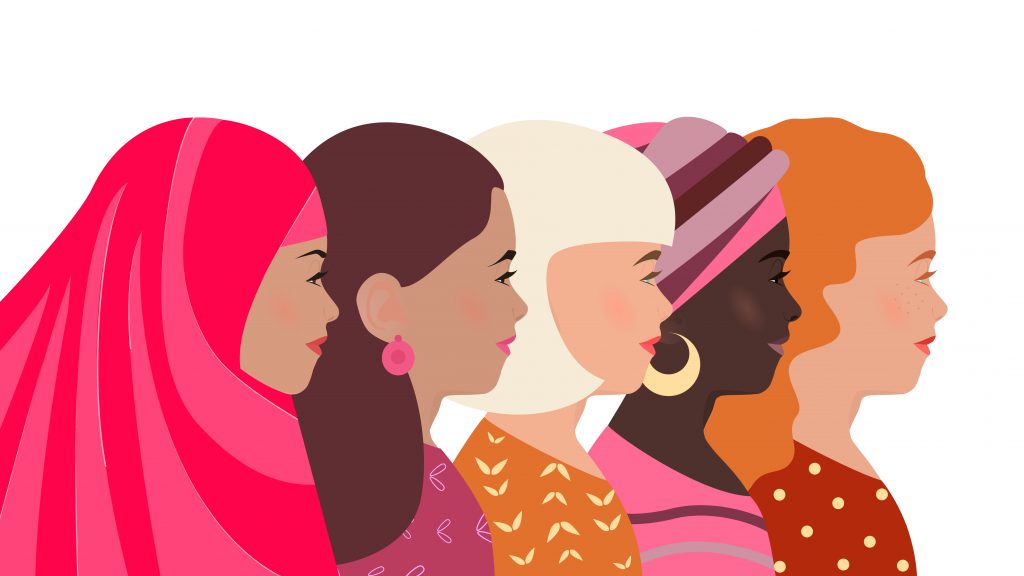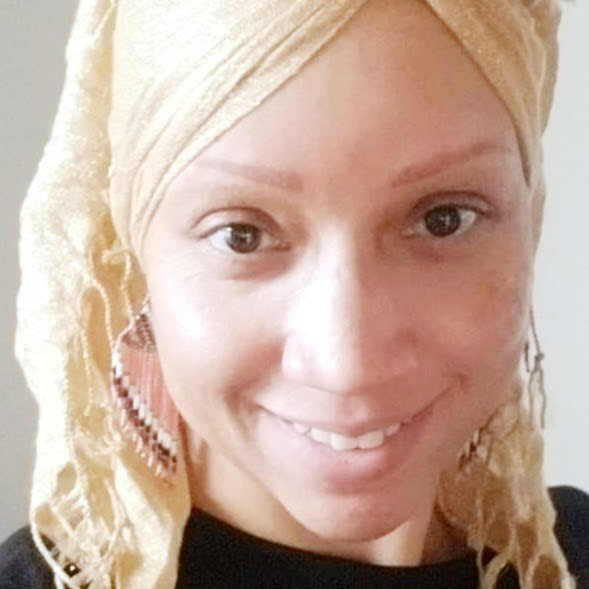
Learning more about the threads of commonality among the Abrahamic traditions has deepened my understanding of economic justice and empowerment concepts as seen through the scriptures and the lived experiences of my colleagues. As a fellow in the ICJS Justice Leaders Fellowship (JLF), I have learned to look beyond the religious titles and rather to people’s hearts, spirits, and ways of life to find compatible working partners as we struggle together for a more just world.
In the land of declared separation of church and state, we are mistakenly urged to ignore the impact of one’s faith orienting system on their way of life, how they show up in the world, and how they approach issues such as economic justice and empowerment. Our faith traditions serve as orienting systems, that is, they create a backdrop for our thoughts, decisions, and actions, along with our often-homogenized cultural traditions. Our faith traditions shape how we regard serving, receiving service, and rights to service.
However, reading our respective scriptures using only first order, abstract analysis leaves room for dogmatic interpretations that separate us from our brothers and sisters of other faith traditions, and for applications that do not support the goal of economic empowerment. One of the benefits of the first half of the JLF program has been exposure to second order, practical, theological thought and scholarship from Jewish, Muslim, and Christian scholars and participants.
Both Brother Benjamin Sax and Sister Zeyneb Sayilgan beautifully outlined both the first and second order aspects of justice according to their understandings of Judaism and Al Islam. Their first order definitions set a familiar foundation that drew upon our faith orienting system. Then, they each artfully applied interpretations which teased out the common issues or sins of wealth hoarding or attachment to wealth, valuing some lives over other lives, and being inhospitable to those who need resources.
Through their presentations and the subsequent small group discussions, we dissected these issues to come to many common conclusions that support the themes around giving and receiving, and the blessings in both. Brother Benjamin’s analysis of a Jewish concept of economic empowerment (no hoarding, ensuring dignity in work, and not engaging in idolatry) complemented Sister Zeyneb’s articulation of Al Islam’s economic justice principles of distributive justice (qist/fairness, mizan/balance, and wasat/moderation). We also discussed practical applications to communities, neighborhoods, and individuals.
In understanding how our experience in the cohort has informed our work, first and foremost, we must recognize the value-add of our faith traditions when doing the work of establishing justice. As servant leaders, our faith is present in our subconscious thoughts and the conscious choices we make. We should lean on our faith traditions for solutions and integrate other concepts to make working models that are fair and just for all.
Inherent in the term “economic justice” is a sense of compassion. Applying a compassion-based faith lens to our work helps us to assess why solutions may not be working and why people may be resisting or cooperating. It helps us to monitor and check our own internal dialogue that may have been influenced by life-limiting, destructive, or even patronizing forces. This then helps us to become more engaged listeners, observers, and partners in doing the work.
I found the Jewish concept of not reducing the human being to the status of worker as relevant to self-compassion and compassion for others. A fundamental error that faith-based communities often make is to only recognize and remember those whose works have been most publicly broadcast and those who “work until they drop.” We can reorganize our masjids (Muslim houses of worship), churches, synagogues, and other institutions to invert leadership roles and priorities so that the needs of the community, including those who work to serve others, and the relationships built among us, are the highest priorities.
This JLF cohort has helped me to examine the nuances of economic justice and to broaden my lens with others who care about and respect faith as a foundational element of our work. It has helped me hone the way I conceptualize economic justice and refined how I might enact these concepts. Through the series of exercises and discussions, I have added valuable resources to my economic justice toolkit.
The resource-mapping exercise was eye-opening and offers a great tool for assessing the strengths and needs of a neighborhood. This gets to the crux of what service efforts often lack: Using a strengths-based approach to offering people what they actually need and want. Too often, when engaging in service work, it has traditionally meant that we give what we feel like giving (or feel obligated in some way to give)–no more, no less–and step away with a feeling of accomplishment. This is not what being a servant leader who is committed to economic justice is about. Rather, it is about symbiosis and mutual respect that assumes everyone has a valuable role in the community. It is about “Ubuntu” or “I am, because we are.”
 Farah Shakour-Bridges is the founder of 4B4, Inc., and a member of the 2021 ICJS Justice Leaders Fellowship.
Farah Shakour-Bridges is the founder of 4B4, Inc., and a member of the 2021 ICJS Justice Leaders Fellowship.
Baltimore is part of a national conversation around questions of justice, race, and community. Members of the ICJS Justice Leaders Fellowship consider how Jewish, Christian, and Muslim teachings and practice can contribute to the public conversation about (in)justice. Opinions expressed in this blog are solely the author’s. ICJS welcomes a diversity of opinions and perspectives. We do not seek a single definition of justice between or within traditions.